Melinda: I’ve been working on a piece that will be done for audio, so it’s a slightly different. It’s about the Mariel boatlift, and it’s also set against the current immigration issues we’re seeing today. Half of it is very historical—I’ve been doing a lot of research on a particular camp in Arkansas where twenty-five thousand Cuban refugees were sent after they landed in Miami in 1980. It’s the same camp where Vietgone writer Qui Nguyen’s parents met.
There’s something really interesting about all these waves of foreign immigrants going through the army barracks in Arkansas. But then there are also the current issues, which keep changing every five seconds. It’s impossible to keep up with what the status is now for asylum seekers, because I’m trying to have that piece be current. Every news alert is just a whole new immersion in what’s happening now.
Rehana: Would you have done something of this scope before your NPRP residency, or do you feel like that helped you tackle things of this level of ambition and scope and research?
Melinda: The residency definitely made it much more attainable. I was able to travel to Miami to sift through the archives at the University of Miami—they have letters and newspaper articles and photographs and first-person accounts, and you can sit in the library and go through boxes. I had space in my schedule and supporting funds available to make that kind of investment.
You have had this fantastic long relationship with Ma-Yi, having been part of their writer’s lab since 2005 and even co-directing it. How has the NPRP residency changed your connection with them?
Rehana: This residency has opened up what it means to be at the center of an organization, especially given that it is a multiyear thing. When a theatre is just producing you, you’re in and out of there relatively quickly and keeping pretty odd, and intense, hours. But with the residency my presence is just assumed. I’m part of the fabric, and so the relationship, while always substantial, has been deepened in a way that can’t be replicated just through a traditional production model.
Now I have the resources and institutional support to do my artistic process the way it should be done—being able to travel, research, and go deep into a subject matter. Ma-Yi always wants to treat their playwrights as active members of the community, of the theatre, but didn’t have the support to do that. So it’s ideal for them to now be able to say, “What do you need and how do we come up with what’s best for us?”
With every play you write, you have to become an expert in whatever it is you’re writing about.
Melinda: I fall in love with the theatre companies I’m working with, and I think of all these things we could do together. I form relationships with the artistic and administrative staff, but in the back of my head it’s always like, Well I’m really only here for six weeks. It’s like this really fast romance.
With the residency, I’ve thought, I can actually plan for next year. I could think about the longer term, about building something that would outlast me. But to do that you need time to set it up and you need buy-in from the company as well. That was the most meaningful part—that there are things I accomplished at the Huntington Theatre Company that are still going on.
Rehana: Six years feels like such an inordinate amount of time, especially when you first get the fellowship. You’re like, I should be able to do so much. And in some ways, we have. But then, also, you think about what you have been able to accomplish in six weeks or eight weeks before, and you realize how superficial everything was then. You had to rush through it, get it built quickly, whether it’s a play, or a reading series, or a community outreach event.
The NPRP residency coincided with me starting a family, and it’s been helpful to have an institution that sees artists as people and is able to help you plan life stuff too. Our daughter was born at twenty-six weeks. She was in the NICU for four months, and the doctors and nurses were telling me and Mike all the time, “You guys are overthinking this NICU life” and we’re like, “We’re playwrights, that is our job. Literally that is all we do.”
Melinda: What you just said sort of makes it explode in my head, about making space in your life to be able to write. There are times when it’s impossible because there’s just too much in life I can’t make the mental space for… What was your process?
Rehana: It was hard because I was sort of out of it medically and mentally, and some of my projects are co-written with Mike. What do you do when one person is a little out of commission? At the hospital, not a lot is in your control, so for me it was like: “What is in my control?” And it was the writing.
There was also the thinking of: “How do I divert my thoughts from worry into working out other problems?” A lot of what I did was problem-solving in scripts as opposed to the creation of new material, because I don’t think I had the headspace or the want to do that. Mike’s working on a NICU play now—part of our daily commute was spent talking through what it could look like and what would be interesting or dramatic.
Ma-Yi was super supportive, saying, “You do what you need to do, and we’re here for you with whatever you need.”
Melinda: It seems like the definition of hope and resistance to be able to create something beautiful out of an experience that has consumed so much of you. That’s what you hope as a writer, that you’re not just researching but also accumulating life experience. And in order to do that, you have to live. You have to go through things.
Obviously we don’t have to have lived everything we write about, but when you have such a life-altering experience like that, it must open up a whole new window to the world.
Rehana: I’m still sorting through a lot of it. It’ll be interesting to see how it works its way into our art, the same way this residency has worked its way into our art, in terms of how we think about what we’re creating and the scale in which we’re creating.
Melinda: The experience of being a parent and specifically motherhood has completely changed my writing. My first big play was really inspired by the thought that there are people in the world who have had to give up their children. Having an infant daughter at the time, it was mind-blowing to me, and I sat with that and created a piece.
It seems like the definition of hope and resistance to be able to create something beautiful out of an experience that has consumed so much of you.
Rehana: How old is your daughter now?
Melinda: She’s eighteen and just started her freshman year of college.
Rehana: How has your writing changed as she’s gotten older and gone through different stages?
Melinda: That’s a good question. I’ve seen a lot of shows she’s been in—theatre for young audiences or the adaptations they do in middle school—and going to the theatre to see kids performing has given me a totally different insight into what theatre is and why it matters and who we make it for.
Right now I’m preparing a remount of my show Back the Night, which is set on a college campus. The play originally was written with six actors playing about fifteen different roles, but now I’m looking at it differently, saying, I want twenty-five people in the show, can I write more roles? Can we explode the idea and go with a Greek chorus so we can include as many young people in this production as possible?
I really liked thinking about this play in that way, as less about my words and vision and ideas and more about making a thing together with a large group of people. Part of that comes from watching the eighth-grade play. There just can’t be that much exposition, they want to get to it. That was a really good learning experience.
Rehana: So you’re working on a lot of things right now.
Melinda: It doesn’t feel like that. It feels like I write really slowly and I work on one thing for a long time and then I work on the next thing. You are multitasking a lot, you’ve got three, four, five things going on at once. I do that when I have to, but it’s not my preferred mode. Do you like it?
Rehana: I do. Mike is more similar to your style of work—he prefers to focus on one thing and go a really long time with it, and I tend to have multiple things at once. I tend to put one down and pick one up and then put one down, pick one up, and the next thing you know five years have gone by and the first is ready to go. It’s similar to my NICU experience: going there, I didn’t want to think about what was in front of my face, I would rather think about all these other things.
I work on all sorts of things all over the map, and that opens up solutions to things in a completely different zone.
Melinda: I know this is a very banal comment, especially as two women talking about writing plays and having kids, but your process reminds me of how I clean the house. I start in one room, but then I have to take something to the other room, so then I go there and suddenly I’m in another room, and I’m leaving things on the stairs to pick up later. Eventually I get to everything.
Do you teach?
Rehana: I’m going to teach a class this spring at my alma mater, New York University, in their Dramatic Writing program. There’s something about the commitment of a whole semester that I’m a little afraid of, but I’d like to get over that. In the past I’ve mostly done playwriting workshops and worked with high school students through programs like the Atlantic Theater’s Staging Success and Broadway for All.
Do you teach?
Melinda: I teach playwriting at Boston University to MFA candidates. They bring in material to class and we read it out loud and talk about dramatic action, conflict, character building, exposition, and choices. I carry around this body of knowledge of how plays work, and then I try to talk about it in the specifics of a scene or a moment or a reading. Before, I had this intuitive understanding of writing as a playwright myself—“something has to happen here,” “this isn’t going far enough,” “I need a surprise here”—but it’s been helpful to have to articulate how plays work to other people, to actually map out the architecture. Teaching also gives me the opportunity to read a ton of new work, which I love.
I do often feel conflicted about having the technical elements laid bare—I don’t know that it’s made me a better writer, and sometimes I can’t get out of my own way because I keep hearing myself critiquing my own play as I’m writing it. I imagine that’s something many writers feel.
Rehana: That inner voice is a real bitch sometimes.
Melinda: Yeah, isn’t she awful?
Rehana: Like come on, can I have just one minute of joy?
I love that tension between the art and the science of making theatre.
Melinda: Do you have theatre or art-makers in your family?
Rehana: My multitasking might come from my dad—he was a chemist, but he would also bring in Pakistani musicians and tour them around the States. My mom did data entry for a little while and then mostly took care of the house. So I’m the only one.
Do you have a family of artists?
Melinda: Not at all. My dad was a mathematician, so he would get obsessed with a problem and he’d sit and think and think. He wasn’t actually doing anything, but you could see he was working, and sometimes he would get up and write—he had notebooks everywhere around the house. When you talked about sitting in the NICU problem-solving, that made me think of my dad. I feel like plays are math problems and they’re floating over our heads, and we’re just waiting for two elements to meet each other and for something to happen. When they come together they make something beautiful.
Rehana: Mike’s parents are doctors and he worked in a lab for a really long time with his dad, and he has equated tech and previews to being in a laboratory. It’s interesting to look at playwriting through the lens of the things we grew up with.
Melinda: Right, like there’s a control, and then there’s the experiment, and then you have a result. That gives the illusion that we have some control over the creative process, which at its heart is mysterious: we get ideas, things appear to us, or we hear a story that suddenly grips us. There’s a mystery to that, but there’s also this process of figuring out how to articulate that.
I love that tension between the art and the science of making theatre.
Rehana: For me it’s the brain switch that gives me release, because if I focus for too long on one aspect I can get lost in it. To be able to switch back and forth between the mystery and recklessness of exploring an idea and then, on the technical side, carving it down, it gives you that sense of control, that feeling of alleviating the fatigue that can come along with it.
Melinda: It sounds like you’re really good at rewriting. Do you like it?
Rehana: I do. I feel like the real work comes in rewriting. I’m not embarrassed by my really ugly first draft because I know there’s going to be something in there.
Melinda: That’s so healthy.
Rehana: In my head, there’s a piece of coal in front of me, and all I’m seeing is what’s inside of it. Nobody else is seeing what I’m seeing, but I am.
Melinda: What happens when you’re co-writing if you see things differently? How do you work through that?


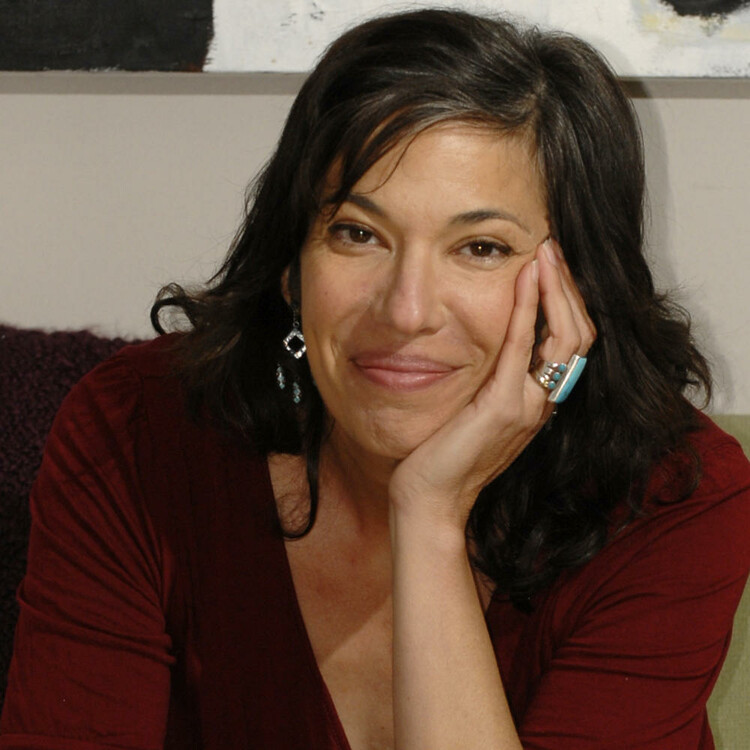
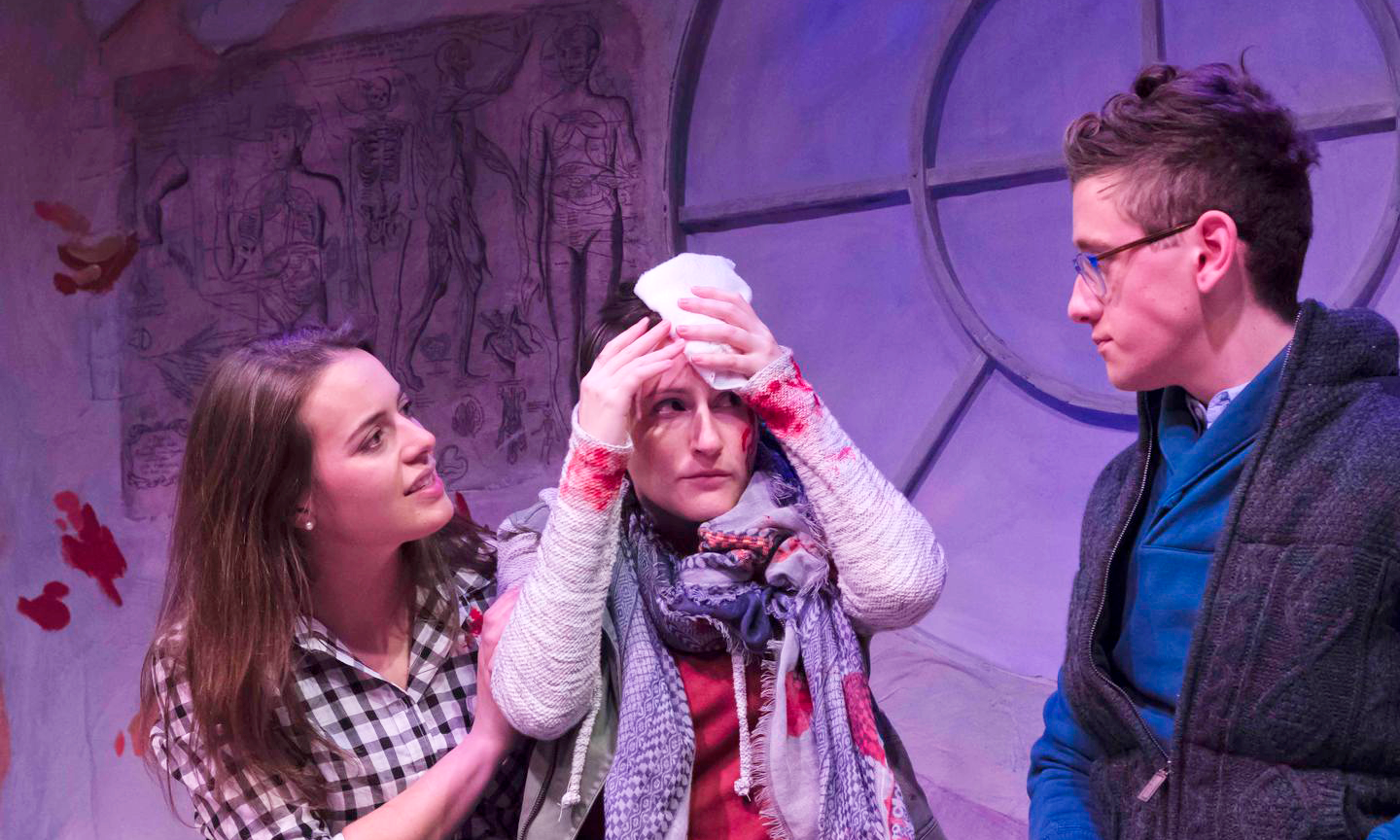


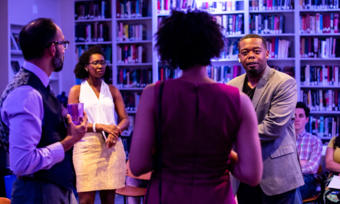


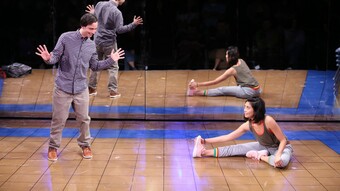


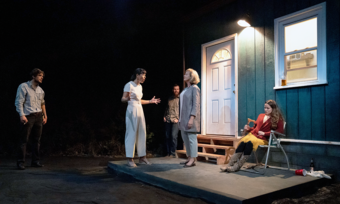


Comments
The article is just the start of the conversation—we want to know what you think about this subject, too! HowlRound is a space for knowledge-sharing, and we welcome spirited, thoughtful, and on-topic dialogue. Find our full comments policy here